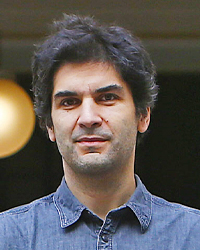In small systems, fluctuations play a crucial role. Stochastic thermodynamics is an emerging theory that deals with fluctuations in the energy changes and the entropy of a system experimenting an irreversible process. In essence, we find the so-called fluctuation theorems that relate the symmetry of the time rupture with the statistics of these fluctuations.
Two milestones of the theory are that it has strengthened the link between the information theory and thermodynamics, and it has been fundamental in the description of experimental manipulations of DNA individual molecules and trapped passive colloids. Therefore, it becomes natural to guess that applications and extensions of this theory can be beneficial for the active matter and other biological systems -where detection and restriction of non-equilibrium is essential.


 Researcher responsible:
Researcher responsible: